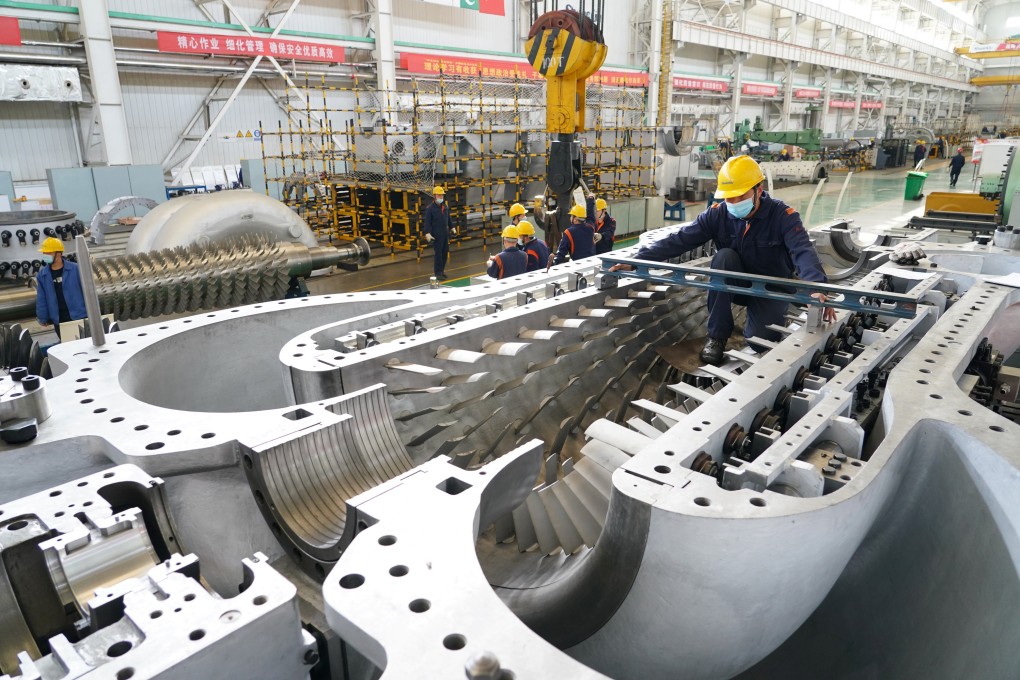China’s state-owned firms advised to focus on tech bottlenecks, security
- Government research institution suggests state companies provide ‘certainty’ for economic development
- Massive firms enjoy privileged, even monopoly status in major sectors, but frequently criticised for perceived inefficiencies

China’s “national champions” – state-owned firms in decisive sectors that are among the country’s largest – have been advised to enhance their presence and pour more resources into loosening economic and technological choke points created by curbs levied from Washington.
“As our country’s economy faces major risks and challenges … state-owned enterprises (SOEs) should provide the greatest certainty for our country’s economic development,” per a report by the Chinese Academy of Social Sciences (CASS), a ministerial-level research institution under the State Council, China’s cabinet.
SOEs must play a key role in maintaining the security of industrial and supply chains, especially in the face of containment and suppression from some developed countries, the report asserted. The document was published in late September.
This role must be taken, CASS said, to “ensure that key industrial and supply chains can operate normally under extreme circumstances” and “effectively [support] the economy, society and national defence security”.
China’s state firms, despite criticism for low efficiency, slow market response and crowding out business opportunities for the private sector, have had a rising stake in the country’s economy in the past decade.
Total assets of China’s SOEs reached 308.3 trillion yuan (US$42.27 trillion) in 2021, according to data released by the Ministry of Finance. The figure for 2011 was 75.9 trillion yuan.
The biggest state firms, which usually enjoy monopoly status in major sectors such as energy, aviation, telecoms, banking, transport and shipping, include China National Petroleum Corporation, China Mobile Communications and rail giant CRRC.